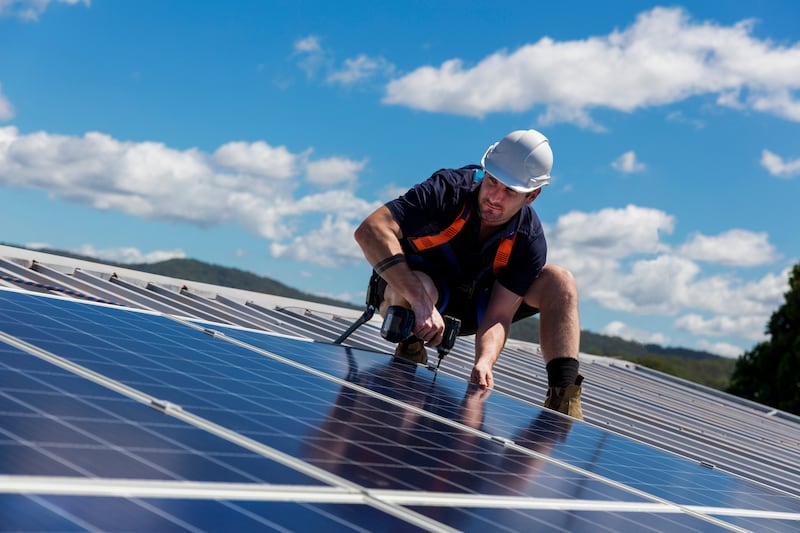Labour has promised households a rebate of up to $4,000 for solar and battery installations, alongside an additional commitment to support community energy schemes, and a pledge to incorporate solar on Kāinga Ora properties.
Under the new policy, households can expect a rebate of $2,000 upon installing solar panels, with an extra $2,000 provided for battery installations. The policy promises $20 million over the next four years towards community energy projects, for those unable to install solar panels in their homes, such as renters.
Additionally, 1,000 Kāinga Ora homes are set to have solar panels installed each year, if Labour is reelected to government next month.
“I am absolutely focused on lowering household costs at the same time as driving New Zealand to become a global powerhouse of renewable energy. This plan does both of those things.” PM Chris Hipkins said.
Hipkins says the government thinks installing solar power will save households up to 50 per cent in electricity bills, or about $850 annually.
“Greenpeace has for years been calling on political leaders to commit to solarising New Zealand,” said Amanda Larsson, a spokesperson for Greenpeace Aotearoa. Larsson said Greenpeace’s goal has always been to replace fossil fuels with renewables and empower regular citizens over their energy needs.
The change in the Labour stance comes after earlier criticisms over the Labour government’s partnership with the world’s largest financial asset manager, BlackRock.
Greenpeace contended it leaned too heavily on overseas asset managers to steer the energy transition.

New Zealand has had no solar subsidies in comparison with the United States, the United Kingdom, and Australia, which have all implemented various financial incentives to support the adoption of solar energy.
Larsson highlighted that more than 30,000 individuals have signed a Greenpeace petition urging the government to invest in household solar.
“It’s common sense and something that many New Zealanders want,” Larsson said.
New Zealand’s power generation mix is dominated by renewable energy sources, with hydroelectricity accounting for around 57%, geothermal for around 15%, and wind for around 5%. Fossil fuels, such as coal and gas however still provide the remaining 23% of electricity generation.
Larsson says the conversation on climate change shouldn’t be solely about renewable energy.
“Here in New Zealand, we have too many cars and too many cows,” she said.
“Alongside this household solar pledge, we would expect to see an unwavering commitment to regulate the drivers of intensive dairying - like a ban on synthetic nitrogen fertiliser - and to ensure the next government prioritises clean transport options over more roads,” she added.

